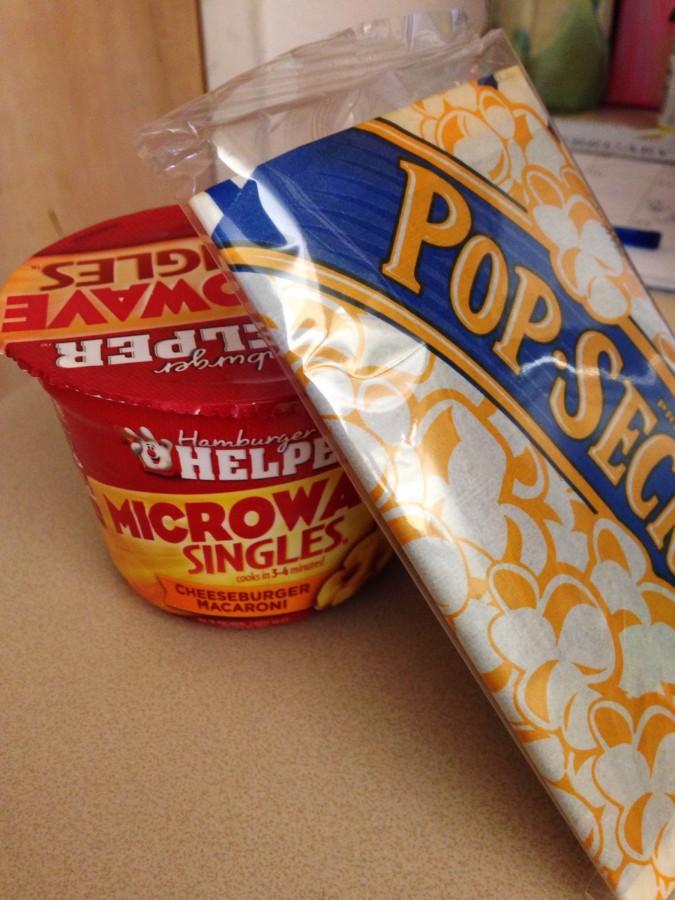Counting Calories and Wellness Points: MSMS Dorm Health
MSMS students tend to indulge in foods that may not be healthy for their bodies.
February 10, 2016
Students come to MSMS as juniors in high school, approximately two years before most students pursue education in residential settings. Students are given the trust and responsibilities of adults, and the time spent at MSMS is used to navigate the balance between work, play and health.
There are three main options for meals when living at MSMS: eating at the cafeteria, eating out with on-campus Subway and delivery pizza, or eating foods kept in the rooms of students. Balanced meals remain possible with most of these options; however, many students frequently indulge in excess amount of sodium and fats.
Take the common ramen noodles, for example. In one pack, there are 875 milligrams of sodium and seven grams of fat according to the nutrition facts on the wrapper. According to the nutrition guide on Domino’s website, a small, hand tossed cheese pizza has 39 grams of total fat and 2,250 milligrams (2.25 grams) of sodium. Even just comparing those amounts to the ramen noodles is shocking.
Wellness coordinator Nisa Moody says, “I feel like the diet depends on the student. Some are more strict with what they eat than others and some just generally could not care less. I feel like this is the same with wellness. If someone is dedicated to going to the gym and working off the calories, bad eating habits become less of an issue. Though it would take more than two hours of wellness a week to find some semblance of a balance.”
The wellness system at MSMS is an attempt at keeping students active and healthy; it works off of a point system. A student must get nine to ten points, which depends on their desired privilege plan, per nine weeks to maintain a good wellness grade. Points are accumulated by spending hours working out. The first two hours of each week count as one point, and every additional hour to that in the same week is equivalent to one point.
Opinions on the school’s wellness system vary, and many students do not believe it is an efficient system. Others believe that it is necessary to have a wellness system because it is important to keep up student health.
Senior Tehya Collier says that the system is not strict enough to help compensate for the bad eating habits in the dorm. She said, “That isn’t going to change someone’s health. People can sign out for wellness and just go sit in the gym. If they wanted it to compensate for bad habits, they would set a certain requirement per week and have actual classes just for MSMS students with sign-up sheets.”
Parents of MSMS students also speculate on the health of their children. Parent Jennifer Palmer said, “The main thing I worry about is if the food tastes good in the cafeteria because if it doesn’t, I know, more than likely, you will resort to eating junk food. I just remember when I ate on meal plan in college. The food was terrible, so I ate ramen noodles literally every day.”
One of the big challenges of succeeding at MSMS is managing personal health according to students, parents and ResLife workers, but being able to do so better prepares students for careers in college.









